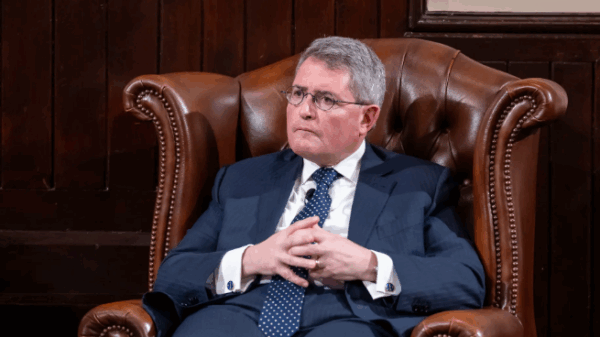President-elect Donald Trump unveiled plans on Tuesday to create a new federal agency called the External Revenue Service (ERS), which would be responsible for collecting tariffs and other revenues from foreign nations. In a post on his social media platform, Truth Social, Trump emphasized that the agency would serve as a means of charging countries benefiting from trade with the U.S.
“We will begin charging those that make money off of us with trade, and they will start paying,” Trump stated, comparing the new agency to the Internal Revenue Service (IRS), which handles domestic tax collection.
The proposal to establish the ERS would require approval from Congress, where Republicans currently hold majorities in both the House and Senate. However, the plan has raised concerns over the need for a new agency, given that existing government bodies, including the Commerce Department and U.S. Customs and Border Protection, already handle the collection of tariffs and trade-related revenues.
Trump has long advocated for reducing the size of government, but the creation of the ERS would add another layer to the federal bureaucracy. The move could also duplicate efforts already underway by existing agencies, raising questions about the effectiveness and necessity of the new agency.
In addition to the ERS proposal, Trump has established the Department of Government Efficiency (DOGE), a non-governmental task force tasked with reducing federal spending and slashing regulations. The DOGE, led by business leaders Elon Musk and Vivek Ramaswamy, will focus on cutting federal programs, firing government workers, and eliminating unnecessary regulations. This initiative is part of Trump’s broader “Save America” agenda as he prepares for his second term in the White House.
As part of his economic agenda, Trump has threatened to impose significant tariffs on foreign imports, with a potential 25% levy on goods from Canada and Mexico and up to 60% on goods from China. These tariffs have become a central element of Trump’s trade strategy, but economists have warned that the costs will ultimately be passed on to U.S. consumers. Critics argue that tariffs are an inefficient way to generate revenue and can harm economic growth.
Democratic lawmakers quickly criticized the plan. Oregon Senator Ron Wyden, the top Democrat on the Senate Finance Committee, called the proposal a “multi-trillion-dollar tax hike” on American families and small businesses. He claimed that Trump’s plan would funnel money toward the wealthy, while placing an unfair burden on everyday consumers.
As Trump prepares for his second term, the debate over his proposed economic and regulatory changes is expected to intensify, with many questioning the long-term effects on both domestic and international trade.








































